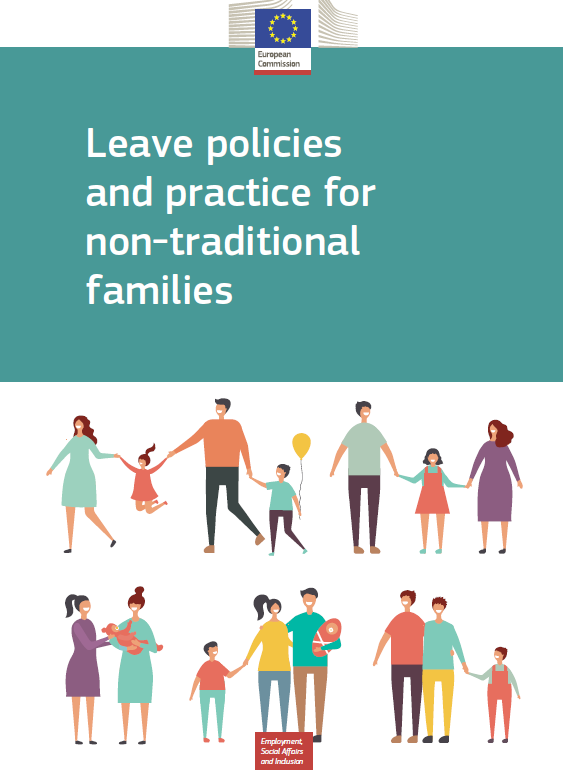Leave policies and practice for non-traditional families
‘Leave policies and practice for non-traditional families’ policy memo provides an overview of the extent to which non-traditional families are taken into account by Member States in developing family leave policies.
The right to maternity, paternity and parental leave for families is now well established in many European Union (EU) Member States. As of 2019, most EU Member States offer some form of maternity, paternity and parental leave following the birth of a child. There remain several differences across Member States in terms of the length of leave, level of compensation and extent of flexibility allowed.
However, as policy is formulated and positioned towards the traditional nuclear family, the access that other, less traditional family types have to such leave is under-explored. This policy memo provides an introduction to the access that parents in adoptive families, reconstituted families (families with step-parents and step-children), and families with same-sex parents have to different types of family leave.
Almost all Member States make provision for adoptive families, with some offering leave arrangements above and beyond what is offered to traditional families. However, access to parental leave is more complicated for families with same-sex parents and reconstituted families. Only a minority of Member States allow the partner of a parent to take parental leave to look after a child to whom they have no legal relationship. As same-sex couples’ access to different types of family leave depends almost entirely on their legal rights to become parents, this too is developing unevenly across Member States. These divergences result in different parental care provisions being available to children depending on the type of families and the Member State in which they grow up.
The new Work-Life Balance Directive sets a direction for the development of leave policies in the EU
The provision of family leave is a right that has long been discussed and included in policy documents, including the Charter of Fundamental Rights of the European Union (Articles 24 and 33) and in the United Nations Convention on the Rights of the Child (Articles 5, 18 and 27).
Most recently, the Directive on Work-Life Balance for Parents and Carers was approved by the European Parliament and Council in the second quarter of 2019 and must now be transposed into national level legislation by 2024. The Directive aims to modernise the EU legal framework in order to allow parents and carers to better balance their life and work commitments, and to ensure equality between men and women regarding employment opportunities and treatment at work. To enable this, the Directive has the specific objectives of improving access to work-life balance provisions and increasing the uptake of paternity, parental and carers’ leave by fathers.
In this way, through the EU legal framework, the Directive aims to reflect and promote a more modern conception of gender roles and families. To some extent, the Directive also acknowledges the existence of non-traditional family types:
- By introducing the right to paternity leave for at least 10days upon the birth of a child for fathers or equivalentsecond parents where and in so far as recognised bynational law.13 The Directive also states that the right topaternity leave shall be granted irrespective of marital orfamily status, as defined by national law and recognisesMember States’ competence in defining such marital andfamily status, as well as establishing which persons areto be considered to be a parent, a mother and a father.
- By restating the previous Parental Leave Directive(2010/18/EU) definition of parental leave as leave thatcan be taken upon the birth or adoption of a child.
- By specifying that Member States should assessthe need for adapting parental leave to the needs ofadoptive parents, parents with a disability, and parentswith children with disabilities or long-term illnesses.
Children benefit when their parents have access to generous family leave policies
Existing research has established that children benefit most in terms of their early development and later outcomes when both their parents are able to take parental leave to look after them and spend time with them.15 As the Directive on Work-Life Balance will now require a minimum standard of paternity, parental and carers’ leave in all Member States, it is important to examine whether there will be any children who cannot benefit from the same access to such leave because of their family composition. As emerging evidence suggests that there are increasingly more families of non-traditional form, an exploration of these families’ access to parental leave is timely.
Read the ‘Leave policies and practice for non-traditional families’
